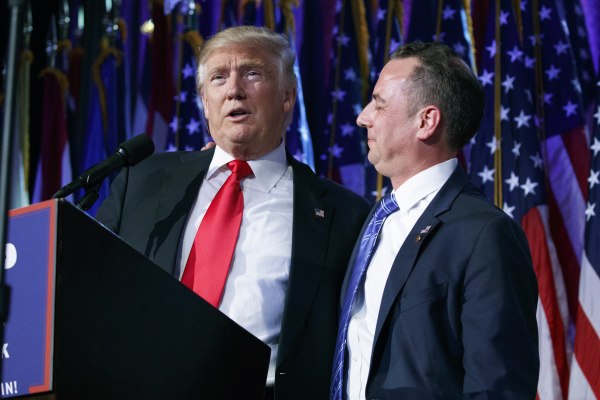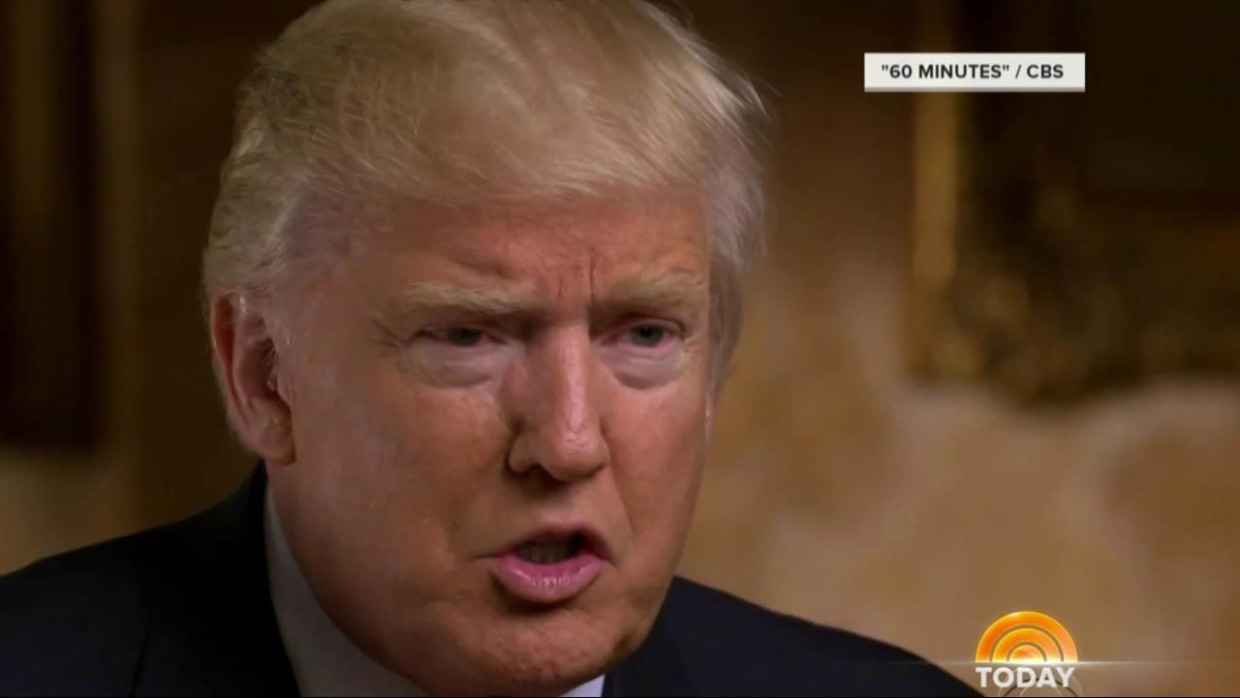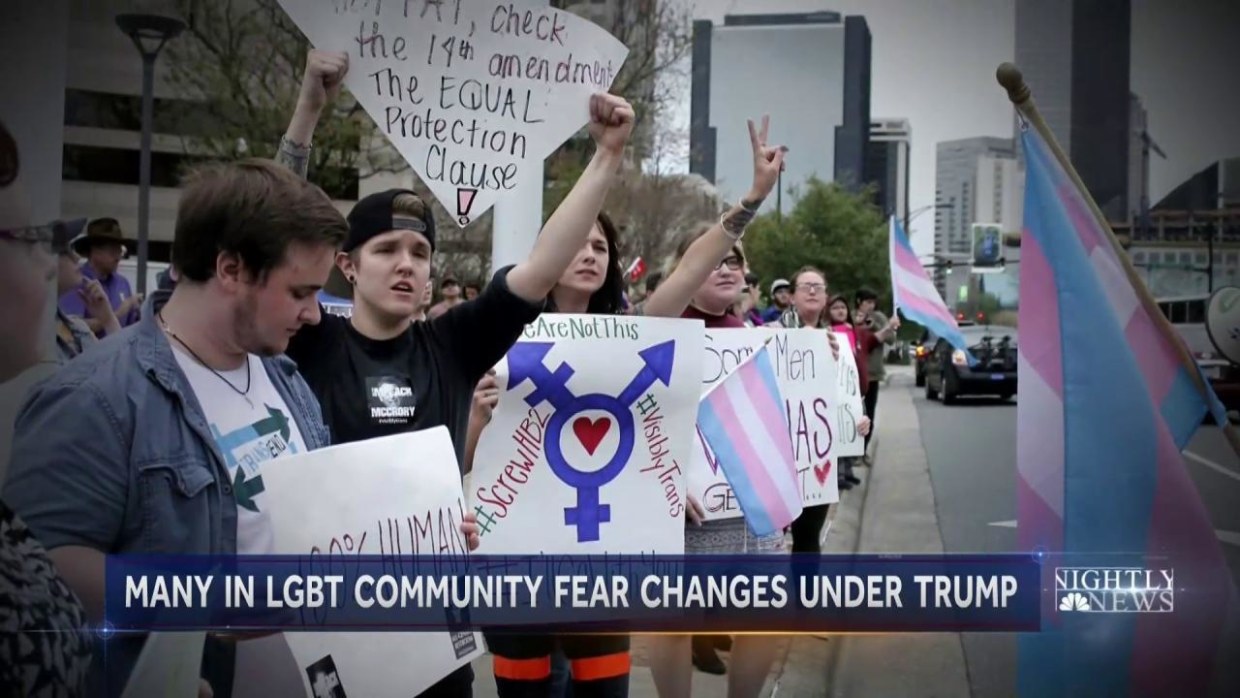President-elect Donald Trump said Sunday he was aware of reports that some of his supporters may be harassing Latinos, Muslims and members of other minority groups — a development he said must stop immediately.
In an extensive interview broadcast on CBS' "60 Minutes," Trump said that such behavior represented only "a very small amount" of his support but that any was unacceptable.
"Don't do it," the president-elect said. "That's terrible, because I'm going to bring this country together."
To reinforce the point, Trump looked directly at the camera and demanded: "Stop it."
For Americans who have loudly expressed fear about his impending presidency, Trump was reassuring, saying: "I would tell them, 'Don't be afraid, absolutely. ... Don't be afraid. We are going to bring our country back. But certainly, don't be afraid.'"
Trump appeared intent on projecting a sober, presidential face throughout the long interview. He praised both President Barack Obama and his vanquished Democratic opponent, Hillary Clinton, calling Obama "terrific ... very smart and very nice" and calling Clinton "very strong and very smart."
"I think I'm a sober person," Trump said. "I think the press tries to make you into something a little bit different — in my case, a little bit of a wild man. I'm not. I'm actually not. I'm a very sober person."
The moderate tone extended to some of the seemingly unalterable positions Trump took during the brutal presidential campaign.
Trump's promised "big, beautiful wall" along the U.S.-Mexico border could be just a fence in some places, he said, and the millions of undocumented immigrants he promised to deport could instead be incarcerated pending an eventual "determination on the people that they're talking about who are terrific people."
And while he stuck to his vow to repeal the Affordable Care Act national health insurance system, he said he'd keep some of its provisions and would make sure a better alternative was in place so at-risk Americans wouldn't lose their health care.
"We're going to do it simultaneously," he said, promising: "It'll be just fine."
"We're not going to have a two-day period and we're not going to have a two-year period where there's nothing," he said. "It will be repealed and replaced. And it'll be great health care for much less money."
Trump even said he wished the campaign had been less vicious on both sides, acknowledging: "They were tough, and I was tough."
While he said he didn't look back on the campaign with any regrets, "I wish it were softer. I wish it were nicer. I wish maybe even it was more on policy."
Trump addressed a wide range of thorny topics in the interview:
- The president-elect repeated that would appoint anti-abortion-rights judges across the federal judiciary, but he stopped short of saying he would demand that any Supreme Court nominee pledge to overturn Roe v. Wade, the 1973 decision legalizing abortion.
Even if Roe v. Wade were to be overturned at the federal level, he suggested, legal abortions would still be available in many states, and some women seeking the procedure will "have to go to another state." In any event, he said: "It's got a long way to go, just so you understand. That has a long, long way to go."
- Trump also acknowledged that he was appointing many transition staffers from the same pool of Washington insiders he'd railed against for the last year and half. That's because, he said, he has no choice.
"That's the only people you have down there," he said of Washington. "Everybody's a lobbyist down there. ... I'm saying that they know the system right now, but we're going to phase that out. You have to phase it out."

Shortly before the interview aired, the Trump transition team confirmed that Trump's White House chief of staff would be Reince Priebus — chairman of the Republican National Committee.
- Trump said he was distressed by leaks involving FBI Director James Comey, whom many Democrats have blamed for contributing to Clinton's defeat after his letter to Congress was leaked disclosing the reopening of the agency's investigation of her email practices.
Asked directly whether he planned to request Comey's resignation, Trump said, "I think that I would rather not comment on that yet."
- Trump said he would prefer to take no salary as president, but if he's required to by law, he would accept $1 a year.
Again and again, Trump came back to his central point: He's not the monster almost half the country appears to believe him to be.
Related: Trump Tells '60 Minutes' He Will Be Restrained on Twitter as President, Then Tweets Slamming NYT
"I'll conduct myself in a very good manner," he said, although he reserved the right to deploy harsh rhetoric if it was what he thought would be best for the country.
It "depends on what the situation is — sometimes you have to be rougher," he said. "I say it very proudly: It's going to be America first. It's not going to be what we're doing. ... Sometimes you need a certain rhetoric to get people motivated."
"I don't want to be just a little nice monotone character," he said, but "in many cases, I will be."
"Honestly to do that, it's easier.



No comments:
Post a Comment